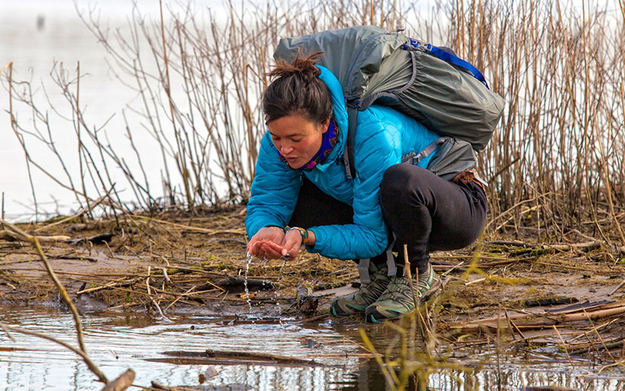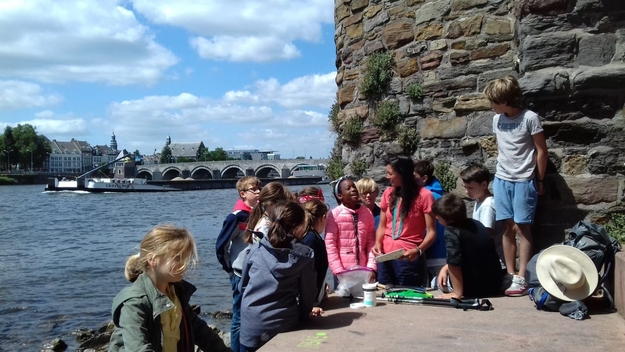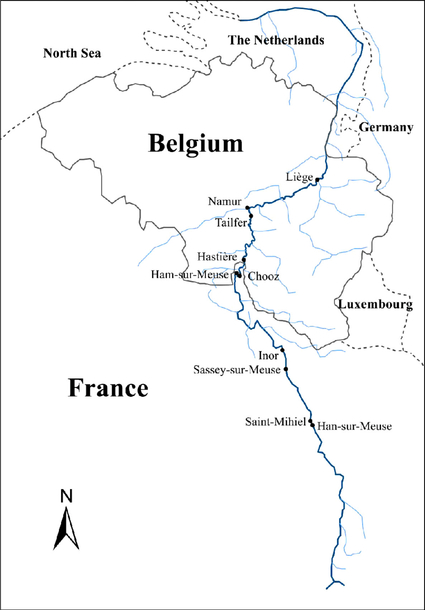Li An Phoa, a whole-systems ecologist and philosopher, canoed through the Canadian river Rupert back in 2005. She drank from the water. Phoa returned to the Rupert in 2008, only this time, water was undrinkable. Pollution in the form of mining and dams had erased the presence of fish and even made some locals ill. The polluted water indicated the precariousness of sustainable and balanced ecosystems, and ultimately represented the unhealthy environment that both humans and other species must interact with.
Rivers die quietly, it seems. Against this rapid pollution, Phoa created Drinkable Rivers, an ongoing series of civil performances and worldwide hubs. The methodology is that of citizenship-lead action: engaging individuals to actively exercise care for the water they live next to - or is it with? For this, river walks are organized on an ongoing basis where volunteers approach other people walking along the river. The Amstel river saw such a walk this past 2019, over the course of 2 days and with a walking length of 35kilometers; with 20 volunteers and several children groups involved. You can watch the video (in Dutch) here: https://vimeo.com/375695103.
At first sight, this kind of walks entertain the idea of raising awareness. Volunteers record conversations and take pictures, perhaps more in the capacity of researchers than that of knowledge providers. Instead of asking for care, the video shows how the people intervened offer both questions and framing of problematics specific to that river i.e. farming resources. The walks rather appear to be an information-gathering exercise, later comprised into a video. But shouldn´t this knowledge be used to draft proposals tailored to the needs of the river?
Some volunteers also carried with them several kits for measuring the quality of the water, such as chloride and phosphate, and this is where the second type of action offered by Phoa comes into play. Findings (rainfall, color, smell, ph, TH and water & air temperature) were recorded through an app, specifying also date, time, location, river and walker. A simple, neat system. This app is, however, difficult to trace. Perhaps it is only available at the time of the walks?
A quick search on the project´s website leaves you disappointed: where are the conclusions for this walk? There are no reviews, feedback, or collected findings. There is not much information on the walks in general - did the volunteers also pick up rubbish, for example? Did they take measures outside monitoring?
The Drinkable Rivers hubs spread throughout the world are supposed to explicitly engage in this quality surveillance, by providing measurement toolkits and communicating to their networks and community. Here, a crucial standpoint of the whole project is exposed: taking effective action into the hands of the affected population, so that any person can participate. By creating and distributing these kits and app, they provide individuals or groups (universities, schools, municipalities) with capabilities for both raising awareness and measuring pollution. On 22 March 2019, World Water Day, the results from “the world´s first civil science of water quality” on the Meuse river were shared. This research involved walking across and taking samples from the Meuse, from its French origin to its Dutch end -a total of 1061km. The analysis of the data was done in collaboration with Wageningen University & Research and the Technical University Delft WaterLab - although the results are yet to be public? Nevertheless, on October of the same year, 11 mayors from France, Belgium and the Netherlands started “Mayors for a Drinkable Meuse”. This coalition promises collaboration but remains a ghost: where are its specific goals, its current undertaken actions?
Once again, we are left with the frustration of non-accomplished capability. We can ensure how undrinkable our river is, we can offer donations, or volunteer action. However, this multifaceted project offers no base for practical intervention. We knew the rivers were deeply polluted long before we used our kits. A more pressing question is perhaps: how can we make rivers drinkable? Drinkable Rivers´ own premise remains unfulfilled, yet promising: “Does this behaviour, this measure, or this innovation contribute to drinkable rivers?” A simple, neat principle for action that is yet to be reflected. Maybe it will be, and specific action is underway. However, their method of a “guiding compass” for replacing the economic growth focus may be deviating from the hazard. We need no more guidelines, we need to begin our interventions.
Samuel Ian Rosen created Tap, a free app that uses a map-like interface to find fresh, drinkable water. His idea arose from the need to replace the plastic bottle monopoly. “It was ridiculous that in 2018 I'm buying a plastic water bottle that's going to last 450 years on earth because I couldn't trust the drinking water at the fountain," he tells MindBodyGreen. This is a different sort of action - survival rather than cleansing, a method for the individual´s use rather than the river´s. Still, it brings out two core issues on river bodies: one, we approach the rivers -and the whole of water- from a position of power, inferring their existence as disposable; two, we don´t trust the water. Even if we were the ones to poison it.
Rivers are our lifelines: we cannot survive without water; we are made of it. Poisoning it is poisoning ourselves, yet we choose to distrust our ecosystem and not our disposition. We choose to shift action into the hands of those affected by unhealthy waters, even if “we” is far from universal. We choose not to choose accountability. We can´t drink from rivers but before we can´t walk the Earth, “we” need to re-evaluate what water means. And how to care for it.
Bonus: Li An Phoa on Care for Drinkable Rivers https://www.youtube.com/watch?v=PPeRXbEta1Y


